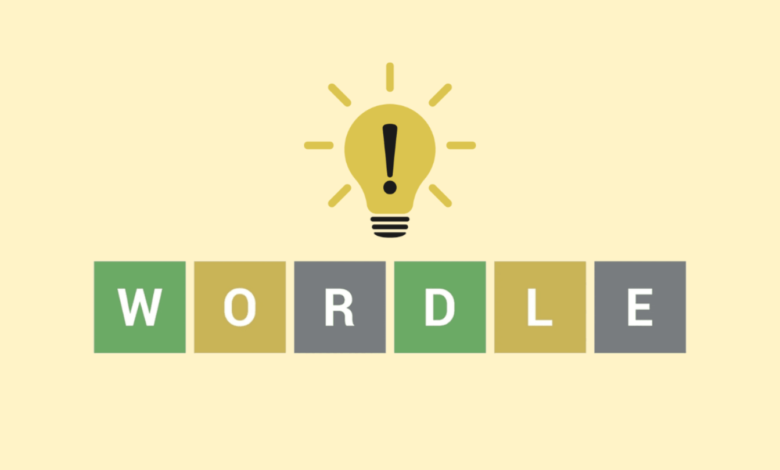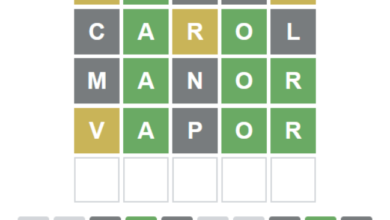Mastering Wordle with Try Hard Guides Wordle Solver

Wordle has become one of the most popular word puzzle games across the globe, captivating millions of players with its daily challenge. For those who are serious about improving their Wordle-solving skills, a Try Hard Guides Wordle Solver can be a game-changer. This approach focuses on strategy, efficiency, and careful word selection to reduce the number of guesses it takes to find the hidden word.
In this detailed article, we’ll explore the ins and outs of using a Try Hard Guides Wordle Solver, covering strategic tips, common mistakes to avoid, and how to apply advanced techniques to consistently solve Wordle puzzles in fewer attempts. Whether you’re a casual player or a dedicated Wordle enthusiast, this guide will help you up your game.
What is a Try Hard Guides Wordle Solver?
A Try Hard Guides Wordle Solver is both a tool and an approach designed to help players solve Wordle puzzles more efficiently. While automated solvers can provide potential solutions based on clues from previous guesses, this approach also involves applying key strategies and logical thinking to narrow down the word possibilities faster.
Unlike casual guessing, a Try Hard Guides Wordle Solver emphasizes strategic word selection, letter elimination, and pattern recognition. This approach is ideal for players who want to consistently solve puzzles within the fewest guesses possible, whether they use a solver tool or simply apply more methodical thinking.
Why Use a Try Hard Guides Wordle Solver?
The Try Hard Guides Wordle Solver offers several benefits for players looking to improve their Wordle performance:
- Maximizes Efficiency: By focusing on high-frequency letters and common word structures, this method helps you identify the correct word faster.
- Reduces Random Guessing: Instead of relying on chance, a Wordle solver guides you toward more educated guesses, increasing your chances of solving the puzzle in fewer attempts.
- Boosts Success Rate: Applying strategic word-solving techniques consistently will improve your Wordle win rate over time.
- Enhances Learning: Through repeated use, a Wordle solver can teach you valuable patterns and tactics that make you a better player without depending on external tools.
The Try Hard Guides Wordle Solver is not just about finding the right word—it’s about understanding how the game works and optimizing your guesses for better outcomes.
Key Strategies for Using a Try Hard Guides Wordle Solver
To make the most of a Try Hard Guides Wordle Solver, you need to incorporate strategic approaches that increase your odds of success. Here are the key tactics you should use:
1. Start with High-Probability Words
The first step in every Wordle game is selecting the right starting word. A good starting word contains multiple vowels and high-frequency consonants, allowing you to gather as much information as possible in your first guess.
Some of the best starting words include:
- Audio: Four vowels, making it perfect for testing vowel presence.
- Crane: Contains both common vowels and consonants like “R” and “N.”
- Slate: A balanced word with common letters that appear in many five-letter words.
These words give you the best chance of identifying the structure of the target word right from the beginning.
2. Eliminate Unlikely Letters Early
Once you’ve made your first guess and received feedback, the next step is to eliminate letters that aren’t part of the solution. The Try Hard Guides Wordle Solver emphasizes efficient elimination, where each guess is designed to either confirm or rule out letters.
For example:
- Gray letters: Letters not part of the word. Eliminate these from future guesses.
- Yellow letters: Letters are part of the word but in the wrong position. Adjust these in your following guesses.
- Green letters: Letters are correct and in the right place. Keep them in the same position moving forward.
By eliminating incorrect letters early, you significantly reduce the number of potential word solutions, allowing you to focus on only those words that fit the remaining clues.
3. Leverage Common Letter Patterns
Certain letter combinations appear more frequently in five-letter words, and recognizing these patterns can help speed up your guesses. The Try Hard Guides Wordle Solver focuses on these common pairings to further narrow down word options.
For example, words frequently contain combinations like:
- TH: Think, Three, Thief
- ST: Stone, Stack, Start
- CR: Crane, Crack, Craft
By testing these common combinations after identifying a few correct letters, you can quickly hone in on the correct word.
4. Use Tactical Guessing
After eliminating certain letters and identifying others, tactical guessing is crucial. This involves making educated guesses that test multiple possible placements of known letters while continuing to eliminate unused letters.
Let’s say you’ve identified that “R” and “A” are in the word but in different positions. Your next guess should focus on trying those letters in new spots while testing other potential letters. Tactical guessing saves you from wasted attempts and makes each guess count.
Advanced Techniques in Try Hard Guides Wordle Solver
For players looking to go beyond basic strategies, the Try Hard Guides Wordle Solver also incorporates more advanced techniques that can give you a competitive edge.
1. Use a Solver Tool for Learning
While relying on an online Wordle solver for every puzzle might feel like cheating, these tools can actually help you learn more about letter frequencies and word structures. Many Wordle solver tools allow you to input the letters you’ve already identified, generating a list of possible words based on your inputs.
Using a solver sparingly can help you recognize patterns and letter combinations, which will improve your skills over time. Once you’ve used a solver to narrow down possible solutions, apply what you’ve learned to your future guesses.
2. Track Letter Frequencies
In English, certain letters appear far more frequently than others. By knowing these frequencies, you can prioritize testing those letters first, which will often lead to faster solutions. For example:
- The most common letters in five-letter words include E, A, R, I, and O.
- Less common letters like Z, Q, and X should be reserved for later guesses unless you’ve identified specific clues that indicate their presence.
Focusing on high-frequency letters first ensures that you’re always making the most of your guesses.
Common Mistakes to Avoid When Using a Try Hard Guides Wordle Solver
Even with a Try Hard Guides Wordle Solver, there are a few pitfalls that can hinder your success. Avoid these common mistakes to improve your gameplay:
1. Reusing Eliminated Letters
Once you’ve eliminated certain letters, don’t include them in future guesses. This is a common mistake that wastes valuable turns. Always keep track of which letters have been ruled out and which ones need further testing.
2. Guessing Rare Letters Too Early
Avoid using rare letters like Z, Q, or X in your initial guesses unless you have a strong indication that they’re part of the word. Focus on common letters first, as this will give you more information early in the game.
3. Ignoring Letter Placement Clues
After identifying letters that are part of the word but in the wrong position (yellow letters), make sure you adjust them in your next guess. Ignoring letter placement feedback can lead to inefficient guesses, slowing down your progress.
Read also: Try Hard Wordle Solver
FAQs About Try Hard Guides Wordle Solver
1. What is the best word to start with in Wordle?
Some of the best starting words are audio, crane, and slate. These words include multiple vowels and common consonants, giving you valuable information in your first guess.
2. How does a try hard Wordle solver work?
A Try Hard Guides Wordle Solver works by analyzing your previous guesses and suggesting possible solutions based on the letters you’ve identified. It focuses on eliminating unlikely letters, recognizing common patterns, and making tactical guesses.
3. Can using a Wordle solver be considered cheating?
While using a Wordle solver can be seen as cheating if relied upon for every puzzle, it can also be used as a learning tool. Solvers help you understand word patterns and letter frequencies, improving your skills over time.
4. How can I improve my Wordle strategy without a solver?
To improve your Wordle strategy without a solver, focus on starting with high-frequency letters, eliminating unlikely options quickly, and practicing tactical guessing. Over time, you’ll develop a sense for which words to prioritize.
5. How many guesses should I aim for in Wordle?
Most experienced Wordle players aim to solve the puzzle within 4-6 guesses. With consistent practice and by using strategic guessing techniques, you can reduce the number of attempts needed.
Conclusion
Mastering Wordle requires more than just luck—it involves strategic thinking, letter pattern recognition, and efficient elimination of unlikely options. By using the techniques outlined in this Try Hard Guides Wordle Solver, you’ll be able to approach each puzzle with a more methodical strategy, reducing the number of guesses needed to find the solution.
Whether you’re using an automated solver tool or applying solver principles in your head, this approach will improve your Wordle gameplay and lead to more consistent wins. Remember, practice makes perfect, so keep playing, keep strategizing, and watch your Wordle skills improve!




